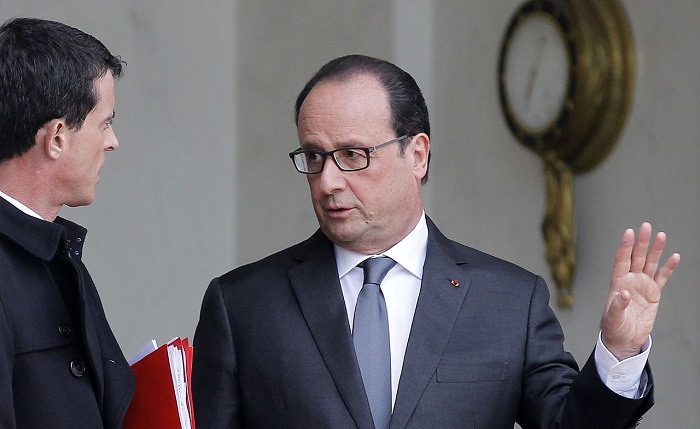It has proved popular with the public – one poll last month showed that 94% of French people approved of the proposal. But Hollande’s critics say the measure would have little practical effect in dissuading terrorists and risks stigmatising people further by creating the symbolic idea of a two-tier French state where certain citizens are worth more than others.
This week it was thought that the measure had been abandoned amid fierce criticism from historians and commentators and dissent within the Socialist party. But on Wednesday the Socialist prime minister, Manuel Valls, announced that the government would press on, saying the measure was a “heavy sanction” that could legitimately be used against those who “betrayed” the state by taking up arms against fellow citizens. It will now be debated in February.
Jacques Toubon, a former centre-right justice minister who is now the French constitutional ombudsman for citizens’ rights, warned against “a fundamental division of French people into two categories, against the spirit and letter of the French constitution”.
On the left, the justice minister, Christiane Taubira, suggested this week that the measure would be shelved, telling Algerian radio it “posed a fundamental problem in terms of national rights by birthplace, to which I am firmly attached”.
Anne Hidalgo, the Socialist mayor of Paris, tweeted her strong opposition to the measure, saying it would “bring nothing to the fight against terrorism”.
Stripping criminals of French nationality has been championed for years by the far-right Front National, and was always criticised by the left. But the Socialist president, seeking to show himself as strong and uncompromising, sparked surprise when he vowed to enshrine the measure in the constitution as part of a wide-ranging amendment aimed at stepping up the fight against terrorism. Several of the assailants who took part in the recent Paris attacks were French by birth.
The notion of stripping French nationality from dual citizens is a highly sensitive issue in France. The foundation stone of the secular republic is that all citizens should be equal and free from distinctions of race, class or religion. But the rise of the far-right and the growing political emphasis on national identity has led to an increasingly tense atmosphere in which many French people whose families have immigrant roots going back generations continue to feel discriminated against.
Because French citizenship can be granted to those born on French soil, the country has many dual citizens who also have citizenship of former French colonies, often in north Africa. There are estimated to be about 3.3 million French people with a second nationality living in France.
Under current law, only dual-national citizens who have been naturalised and acquired French citizenship less than 10 years before a convicted crime can be stripped of their French nationality, not those who are born French. But Hollande’s government is seeking to extend this to stripping nationality from all dual-national citizens convicted of terrorism, including those who were born French.
Pascal Cherki, a rebel within the Socialist party, said it was a far-right measure and he could not see how the left could fight the far-right while “appropriating measures from its programme”.
Eva Joly, a high-profile former fraud prosecutor and Green party figure who has dual nationality, said: “It’s a measure with no practical significance that will not combat terrorism. It’s purely symbolic and political. It’s revolting; I see it as a way to divide French people and sacrifice our values.”
The measure will be part of the government’s package of proposals to be enshrined in the constitution – including emergency security powers such as house arrests and the right to raid houses without judicial oversight. Approval requires a three-fifths majority of both houses of parliament, and so will need the support of the right, which is largely in favour.
More about:















































